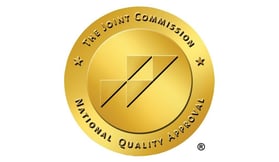
For healthcare facilities, reliable power is essential. To help ensure patient safety and maintain essential accreditations, facility managers must comply with a number of industry codes and regulations, including standards set by the Joint Commission.
Formerly known as the Joint Commission on Accreditation of Healthcare Organizations (JCAHO), the Joint Commission is the nation's oldest and largest standards-setting body in health care, accrediting more than 22,000 U.S. healthcare organizations and programs. To achieve Joint Commission accreditation, there are two key elements of performance (EPs) for electrical system and the emergency power system: EC.02.05.03 and EC.02.05.07.
EC.02.05.03 – Utility System Inventory
Hospitals must perform and submit an inventory of their utility system, including the main electrical distribution and emergency power system equipment and components. The inventory should include alarm systems, exit route and exit sign illumination, emergency communication systems, elevators, any equipment that could cause patient harm if it fails, and areas in which loss of power could result in patient harm.
EC.02.05.07 - Emergency Power Testing Standards
This EP covers the inspection, testing, maintenance and documentation requirements of emergency power systems, so these systems are less likely to fail during a power outage. Below is a schedule of testing and documentation tasks.
Monthly
- Every 30 days, functional testing of battery powered lights required for egress for at least a 30-second duration
- Twelve times a year, at intervals not less than 20 days and not more than 40 days, emergency generator testing for at least 30 continuous minutes under load.
- Twelve times a year, at intervals not less than 20 days and not more than 40 days automatic transfer switch testing
Quarterly
- Functional testing of stored emergency power supply systems for five minutes or as specified for its class
Annually
- Testing of stored emergency power supply systems at full load for 60 percent of the full duration of its class
- Functional testing of battery powered lights required for egress for a duration of 1.5 hours or the replacement of all batteries every 12 months and the random testing of 10 percent of all batteries for 1.5 hours
Three Years
- At least once every 36 months, hospitals with a generator providing standby power must test
those generators for at least four continuous hours, with a dynamic or static load of at least 30 percent of the nameplate rating or meets manufacturers' recommendations
If a required essential electrical system test fails, the hospital must implement measures to protect patients, visitors and staff until repairs or a permanent fix can be put in place. It also must perform a retest after making repairs.
If you have questions about keeping your health facility genset in compliance with the Joint Commission regulations – or other codes and standards – please contact our team. We are always pleased to support the design, installation, operation, testing and maintenance of your power generation systems.
.png?width=159&height=72&name=Curtis%20Power%20Solutions%20(RGB).png)






